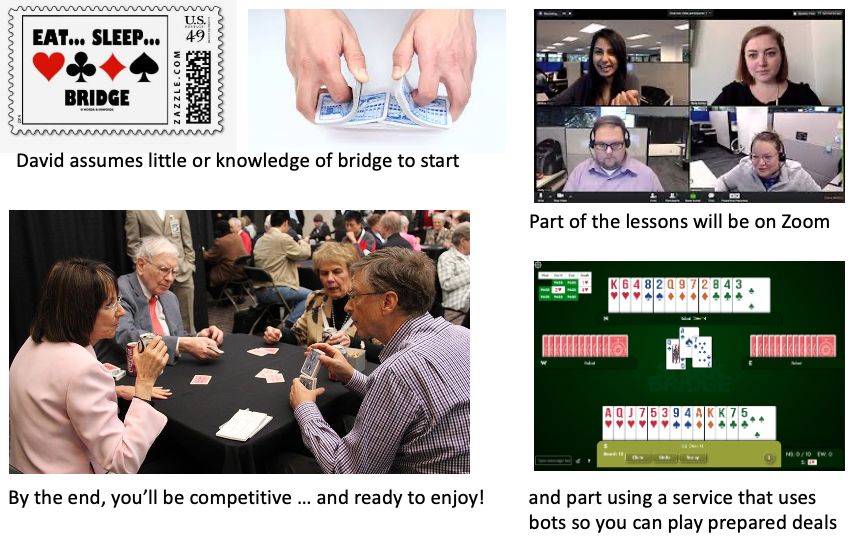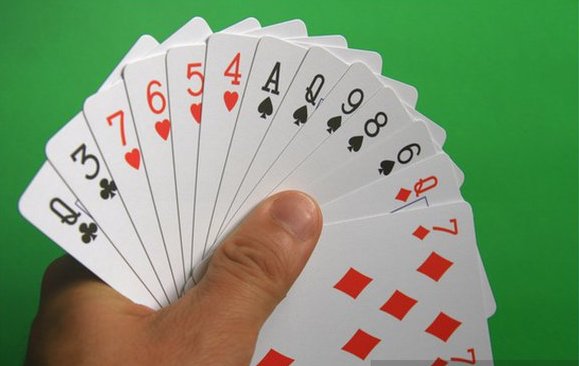Howorth’s Bridge Lessons for Yalies, Redux
Back in the Summer of 2021, some Classmates joined David Howorth (Davenport ’69) for 10 weekly online lessons.
David is certified by the American Contract Bridge League for both face-to-face and online teaching, and he gets rave reviews from students who take his Bridge course.
The lessons assume no prior knowledge of bridge, but David has found that he can move along briskly with intelligent folks like you. You’ll emerge with a firm foundation of bidding, play and defense.
Spouses are welcome to David’s course — Bridge is, after all, a “partnership game” and some couples find it a fun activity they can do together.
If interested, sign up by September 25th.
(If you have questions, use the “contact us” form, and we’ll forward them to David.)
Bridge is a great way to exercise your brain and to socialize, with or without spouses.
About half of those who sign up for David’s lessons are retirees who played some when they were young and now want to get back into bridge; the other half are novices.
The lessons are as close to free as he can make them. (There’s a $15 charge per student to cover the cost of the web-based service he uses, and a sub-$20 book from Amazon you’ll need.)

The Course
The course consists of ten two-hour lessons, and often a short eleventh lesson to ensure that everything’s been covered.
About the course curriculum, David explains:
You won’t learn squeezes and endplays in this course, but you will learn the basic techniques of bidding, play, and defense. For better or worse, I proceed at a faster pace than most teachers of beginners do.
With the web-based service I use, each student gets to play three to five preset hands every lesson while I supervise the play.
I should mention (and you can skip this paragraph if you’re a true beginner) that the bidding I teach is “standard bidding,” which is what nearly all beginners are taught. Most players who have played for a while will migrate to a slightly different bidding approach, “two-over-one” (“2/1”). I continue to teach “standard” because beginners usually play with beginners and that’s what beginners learn, but I’ll be happy to help students who want to learn 2/1 (it’s what I play myself when I’m competing in tournaments), perhaps in an additional lesson.
If you’re interested, fill out the form before 25 September so David can make proper arrangements.


All my life I have wanted to learn bridge, having watched some of my classmates play brilliantly in our undergraduate years. I was thrilled when I finally had the opportunity to learn from a dedicated life-long student of the game, and a dear classmate. I took David’s online bridge class the last time around. And never have I had such as challenging good time. David re-ordered the pedagogical progression, simplifying the logic. He provided endless practice hands (the key to learning the game). And it was a good group; we had fun. Almost like being back at Yale.